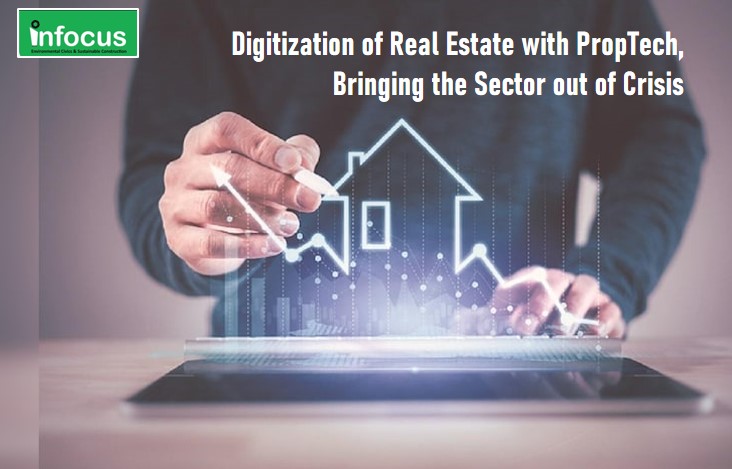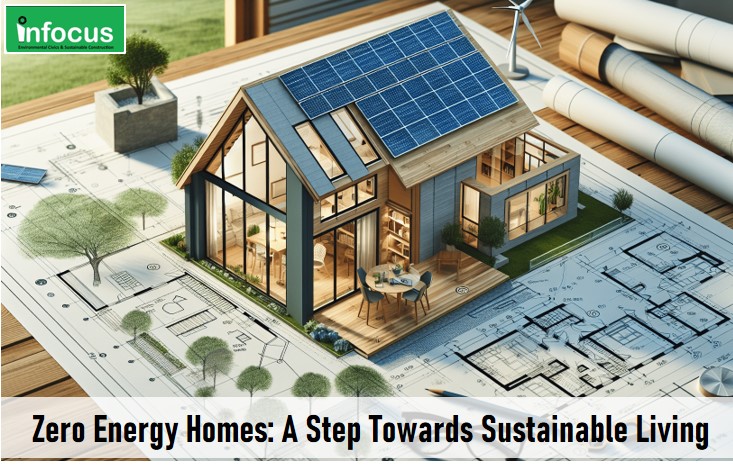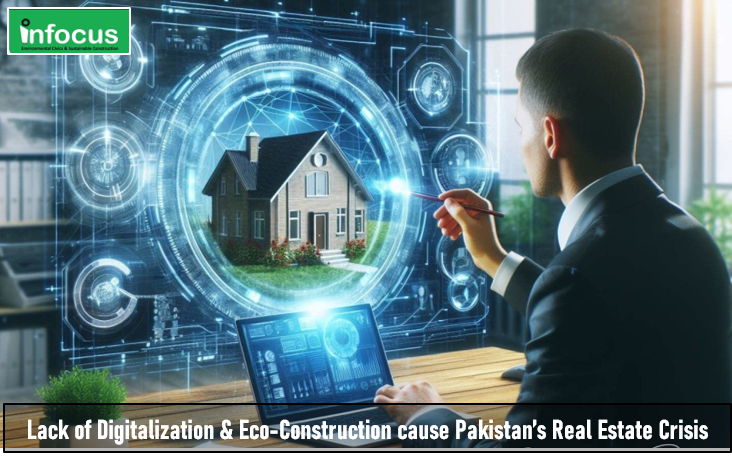Hardly anybody disputes that Pakistanis remain always slower to keep pace with modern technology and sustainable practices. Which is the reason, Pakistan’s real estate sector, once a promising investment avenue, is now facing a significant crisis. Two key issues stand out as major contributors: the lack of digitalization and the absence of eco-construction practices as well as eco-friendly materials. These factors not only hinder the sector’s growth but also make it unsustainable in the long run, affecting investor confidence, environmental impact, and overall urban development.
Pakistan’s Real Estate Crisis
There can be many reasons, argued for that by the builders and realtors’ community. However, it cannot deny, globally digitalization and eco-construction are the order of the day. Pakistan’ recent real estate crisis can be overcome, if the builders’ community begins to accommodate these technologies in building and construction. As embracing digital transformation can bring much-needed transparency, efficiency, and investor confidence to the market. At the same time, adopting eco-friendly construction practices will not only address environmental concerns but also align Pakistan with global sustainability trends.
Let’s analyze each factor separately:
1. Lack of Digitalization in the Real Estate Sector
The real estate industry in Pakistan has been slow to embrace technological advancements. While digital transformation is revolutionizing sectors across the globe, Pakistan’s real estate market remains largely traditional. This lack of digitalization manifests in several ways:

- Inefficient Transactions: Real estate transactions in Pakistan often involve multiple layers of paperwork, manual processes, and middlemen, making the system prone to inefficiencies and delays. This is a stark contrast to global trends, where digital platforms streamline property transactions, reduce paperwork, and provide transparency. The absence of such systems in Pakistan adds unnecessary complexity to buying, selling, and transferring property, leading to a lack of trust and discouraging investment.
- Limited Data Transparency: In developed markets, digital platforms provide comprehensive, real-time data on property prices, market trends, and ownership history, enabling informed decision-making. However, in Pakistan, real estate data is often fragmented, outdated, or unavailable, making it difficult for investors and buyers to assess the true value of properties. This lack of transparency increases the risk of fraud and deters both local and international investors.
- Slow Adoption of PropTech: Property technology (PropTech) solutions, such as virtual property tours, AI-driven price estimations, and blockchain for secure transactions, are virtually non-existent in Pakistan. While PropTech is reshaping real estate markets globally by enhancing convenience and reducing risks, Pakistan’s slow adoption leaves the market outdated and unattractive to tech-savvy overseas investors and younger generations looking for seamless, digital solutions.
2. Absence of Eco-Friendly Construction Practices
The environmental sustainability of real estate is becoming a critical consideration for investors, developers, and governments worldwide. However, eco-friendly construction remains largely ignored in Pakistan’s real estate landscape, and this has serious consequences.

- Environmental Degradation: Pakistan is already facing environmental challenges such as water scarcity, air pollution, and deforestation. The construction sector, which heavily relies on traditional, resource-intensive methods, further exacerbates these problems. Conventional construction practices consume vast amounts of energy, water, and raw materials, leading to higher carbon emissions and resource depletion.
- Lack of Green Buildings: Globally, green buildings that are energy-efficient, water-saving, and built with sustainable materials are becoming the norm. These buildings not only reduce operational costs for owners but also contribute to a healthier environment. In Pakistan, however, the concept of green buildings is still in its infancy. Very few developers incorporate sustainable practices like solar energy, rainwater harvesting, or the use of eco-friendly materials. As a result, the country’s real estate projects are not aligned with global sustainability standards, making them less attractive to environmentally-conscious investors.
- Lack of Incentives: Many countries offer incentives for developers and buyers who prioritize eco-friendly construction. These incentives can range from tax breaks to reduced utility costs, making sustainable buildings a lucrative investment. Pakistan, by failing to promote eco-friendly construction, misses out on these opportunities, which could help revitalize the sector and attract foreign investment.
If these issues are not addressed, the real estate sector will continue to struggle, further hampering economic growth and development in the country. The future of Pakistan’s real estate lies in its ability to innovate and embrace sustainable, tech-driven solutions.
By
Editorial, Infocus


